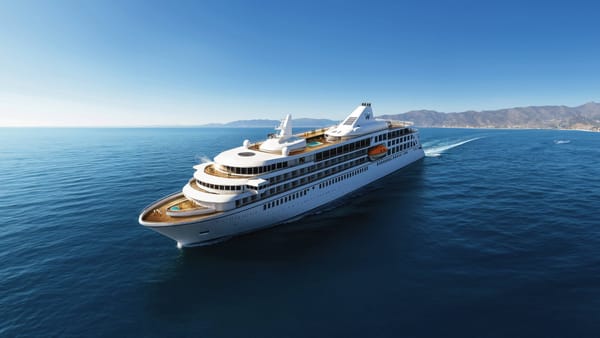Cruisers warned: avoid camouflage in Bahamas ports

Traveling by cruise ship can be an incredible experience, offering a blend of relaxation, adventure, and exploration of various cultures. However, understanding and respecting the customs and regulations of the ports you visit is equally important for ensuring a smooth and enjoyable journey. Recent news has highlighted incidents involving cruise passengers who failed to adhere to local dress codes, specifically regarding military-style attire, which serves as a reminder for all travelers.
Cultural Etiquette and Dress Codes on Cruises
One recent incident involved a cruise passenger who was instructed to return to their ship while at the port of Nassau in the Bahamas due to their choice of clothing. The passenger was wearing camouflage attire, which is strictly prohibited in many Caribbean destinations, including the Bahamas, Barbados, and Jamaica. This situation underscores the necessity of understanding local customs before embarking on your voyage.
The Importance of Researching Local Regulations
Most travelers look forward to exploring new cultures and sights while on a cruise. However, it’s essential to remember that different countries have their own rules and customs that might differ significantly from what you're accustomed to at home.
For example, the Bahamas has regulations prohibiting civilians from donning military-style clothing, such as camouflage. These policies serve a purpose—alleviating potential misunderstandings that could arise with local authorities.
Consequences of Ignoring Local Dress Codes
In the case of the angry cruise passenger, they took their complaint to social media, hoping for sympathy but received a reminder instead. Carnival's Brand Ambassador John Heald explained that the cruise line had no control over local laws and stressed that such regulations must be respected. Ignoring these rules can lead to uncomfortable confrontations with local law enforcement or, in severe cases, hefty fines or imprisonment.
Understanding the Risks
In Barbados, for instance, failing to comply with the camouflage prohibition could result in a fine of up to $2,000 or a year of imprisonment. Cruise travelers should weigh the potential consequences of their clothing choices against the desire to express themselves.
Key Cruise Tips for New Travelers
As you plan your cruise, keeping a few fundamental tips in mind can enhance your experience. Here are some recommendations to help you navigate the cultural nuances of your destinations smoothly.
1. Research Port Destinations
Before your cruise, take the time to gather information on the ports you will be visiting. Focus on local customs, traditions, and regulations to ensure you fully respect the community you are visiting.
2. Dress Appropriately
Pack a range of clothing that aligns with the destinations on your itinerary. Gentle attire is often required for entering sacred spaces, such as churches and mosques; covering shoulders, knees, and upper arms is generally expected.
3. Stay Informed About Local Laws
Familiarize yourself with any laws specific to clothing and behavior in the areas you are visiting. Be aware that certain items may be restricted or frowned upon in various regions.
Jackpot or Tailspin? Understanding Cruise Guidelines
Despite the aforementioned incident, not all cruise destinations impose strict dress codes. For example, Grand Turk, in the Turks and Caicos Islands, allows camouflage clothing, but it also enforces other guidelines that cruise travelers should follow.
New Policies for Grand Turk Cruise Passengers
Recently, Carnival and Grand Turk's local government implemented new guidelines aimed at ensuring the safety and well-being of all visitors. One primary rule requires cruise passengers entering the Grand Turk Cruise Center to wear identification badges, which will be provided without charge upon entry.
Business Activities and Safety Regulations
Only approved tour operators and licensed retailers are permitted to conduct business within the port area. This restriction is intended to prevent overly aggressive sales tactics and ensure a pleasant atmosphere for everyone.
Emphasizing Respect for Local Communities
New regulations also enforce standards to protect tourists from harassment. Strict prohibitions against nuisance activities, verbal abuse, and illegal conduct are in place to maintain a peaceful environment.
Understanding the Role of Local Law Enforcement
Local law enforcement takes these regulations seriously, and an offender's failure to comply can lead to serious consequences. This reinforces the importance of being aware of both personal actions and local laws while enjoying your cruise.
Conclusion
The joy of cruising involves exploring beautiful destinations, indulging in new experiences, and immersing yourself in diverse cultures. By respecting local customs, dress codes, and regulations, passengers can greatly enhance their cruise experience while fostering positive relationships with the communities they visit. Remember, a little preparation goes a long way in avoiding misunderstandings and ensuring a smooth, enjoyable trip.
Frequently Asked Questions (FAQs)
1. What should I wear when visiting ports that have strict dress codes?
Research the specific dress codes for each port of call, and be sure to pack clothing that aligns with local regulations. Modest attire is often required for sacred sites.
2. What are the potential consequences of violating local dress codes while cruising?
Potential consequences can range from being asked to return to your ship to fines and, in serious cases, imprisonment, depending on the local laws.
3. How can I ensure I'm respecting local customs during my cruise?
Research local customs and laws prior to setting sail and familiarize yourself with the cultural norms of the places you plan to visit.
4. Are there any clothing items I should avoid wearing on cruises?
Avoid wearing military-style clothing, including camouflage, in ports where such attire is prohibited, as well as clothing deemed inappropriate in local customs.
5. What guidelines should I follow when conducting business while in port?
Only conduct business with approved operators or licensed retailers within the port area and be respectful while doing so to maintain a positive interaction.




